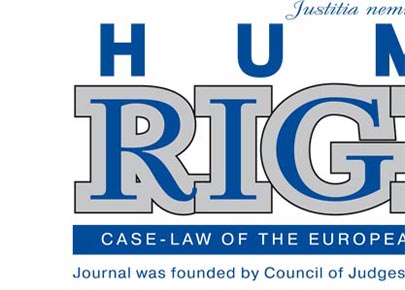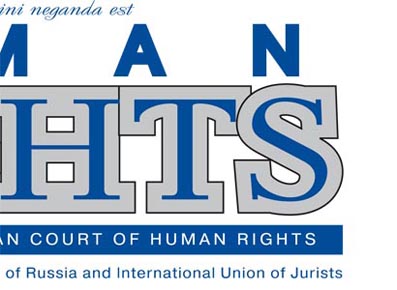
鈩?7 (16)
You have in front of you, dear readers, the seventh issue of our journal. The issue contains much useful and important information. Particularly I would like to draw your attention to two materials: the article by Mr Vincent Berger, the Jurisconsult of the European Court of Human Rights 芦Une nouvelle condition de recevabilite des requetes individuelles a la Cour de Strasbourg禄; translations of judgments by the Chamber and the Grand Chamber of the European Court in the case of Sisojeva and Others v. Latvia (no. 60654/00) and other material related to the case.
Mr Vincent Berger's article addresses the issue of new criteria of admissibility in the light of changes in the Convention provided that Protocol No. 14 to the Convention takes legal effect. The author suggests (and it is hard not to concur with him) that 芦袚 interpretation de la Convention devrait connaitre des evolutions qui seront autant de defis a relever par le jurisprudence de la Cour: l'emploi de la notion de victime, l'epuisement des voies de recours internes, l'elaboration de principes directeurs et la determination de la satisfaction equitable禄. 芦...Pendant plus d'un demi-siecle les institutions de la Convention ont ete confrontees a un seul et meme ensemble de conditions de recevabilite, qui n'a subi ni ajout ni suppression. En introduisant l'imperatif du 芦prejudice important禄, le Protocole No. 14 bouscule cette stabilite. Fait-il sauter un verrou? Prefigure-t-il le renforcement des conditions existantes, comme le raccourcissement du delai de saisine? Annonce-t-il l'adoption de criteres supplementaires?禄
Indeed, Protocol No. 14 causes many questions, but the document is the manifestation of the will of the Contracting States. In order to move further there should be practical experience of application of the new provisions of the Convention. As soon as the document takes legal effect and we will all see its pluses and minuses, then of course there will be some need in amending the Convention.
Having examined the case of Sisojeva and Others v. Latvia the European Court delivered two diametrically opposite judgments by the Chamber and by the Grand Chamber of the Court.
A special characteristic of the case is that in the judgment by the Grand Chamber the European Court has revised its jurisprudential stand on the matter when an applicant loses her or his status of a 芦victim禄 of a violation of the Convention, within the meaning of Article 34 of the Convention.
Earlier the Court was repeatedly reiterating, as its settled case-law, to the effect that a decision or measure favourable to the applicant is not in principle sufficient to deprive her or him of her or his status as a 芦victim禄 unless the national authorities have acknowledged, either expressly or in substance, and then afforded redress for, the breach of the Convention. Having changed this stance the European Court in fact revised one of basic premises of the Court's case-law, which will affect examination of pending cases and affect earlier examined cases. In particular it is true as regards the case of Ilascu and Others v. Moldova and Russia (no. 48787/99).
You may read more about the matter in the current issue of the journal. We also offer you the translation of the judgment by the Chamber of the European Court of 16 June 2005, with the continuation in the next issue.
In the next issues we will publish a number of interesting articles on the matters of admissibility, and, to continue the topic of the supervisory review, we will publish the article by two Counsellors of the Russian Federation Constitutional Court on the supervisory review procedure in Russia. There will also be the translation of the very important judgment by the European Court in the case of Tuleshov and Others v. Russia whereby the Court found violations of Article 1 of the Protocol No. 1 to the Convention and Article 8 of the Convention. This judgment by the European Court of Human Rights is consonant with the judgment by the Russian Federation Constitutional Court No. 6-P of 21 April 2003.
Vitaly Portnov
 Back
Back
Content 



